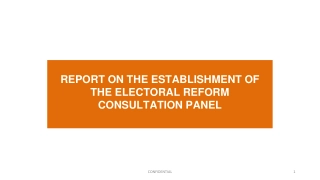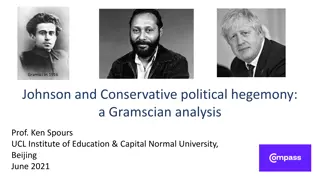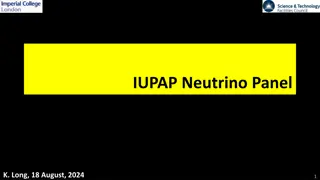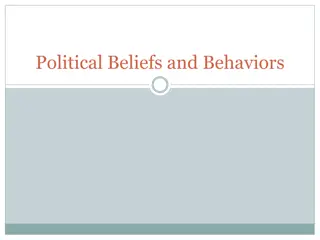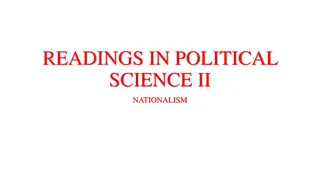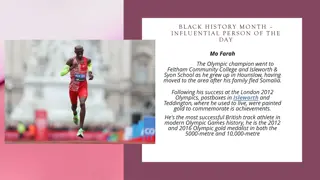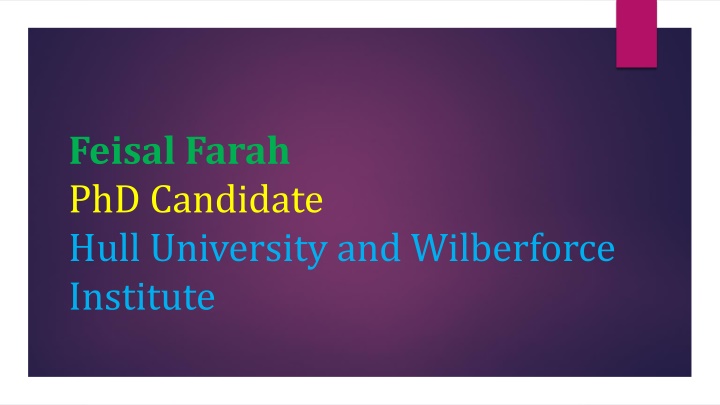
Political Salafism and Al-Shabaab in Coastal Kenya - Study by Feisal Farah, PhD Candidate
Explore the evolution of Political Salafism and its connection with Al-Shabaab on the coast of Kenya, focusing on the marginalization of the Muslim population post-colonialism. The study delves into the radicalization of disaffected Muslim youths and the role of Salafi Imams in supporting and recruiting for Al-Shabaab. Sheikh Al-Amin Ali Mazrui's reformist influence in challenging local Islamic practices is also discussed.
Download Presentation

Please find below an Image/Link to download the presentation.
The content on the website is provided AS IS for your information and personal use only. It may not be sold, licensed, or shared on other websites without obtaining consent from the author. If you encounter any issues during the download, it is possible that the publisher has removed the file from their server.
You are allowed to download the files provided on this website for personal or commercial use, subject to the condition that they are used lawfully. All files are the property of their respective owners.
The content on the website is provided AS IS for your information and personal use only. It may not be sold, licensed, or shared on other websites without obtaining consent from the author.
E N D
Presentation Transcript
Feisal Farah PhD Candidate Hull University and Wilberforce Institute
The Evolution of Political Salafism: Al-Shabaab and Islamic Networks on the Coast of Kenya THE EVOLUTION OF POLITICAL SALAFISM: AL- SHABAAB AND ISLAMIC NETWORKS ON THE COAST OF KENYA
Abstract This study will discuss the connection between Political Salafism and Al-Shabaab on the coast of Kenya. People on the coast of Kenya and the Muslim population in particular have suffered from political and economic marginalization during and after colonialism. The study focuses on the evolution of political Salafism and the changing landscape of Islam on the coast of Kenya.
Abstract 2 By the 1990s, disaffected Muslim youths were flocking to the radical Muslims preachers, who were able to radicalize and mobilize them. When al-Shabaab showed up a decade or two later there was a ready pool of potential recruits among Kenya s disgruntled Muslim youths. The study plans to show that the city of Mombasa and the other coastal towns were already a fertile ground for recruitment into a jihadi movement.
Abstract 3 I will show that al-Shabaab was able to take advantage of the existing social grievance amongst Kenya s disadvantaged Muslim populations on the coast. Salafi Imams were not left out either. They were able not only to give moral support to al-Shabaab, but also funneled recruits and financial help to al-Shabaab.
Sheikh Al-Amin Ali Mazrui Page 2 Islamic Reformist Challenged local Islamic practices on the coast of Kenya He published weekly circulated in Mombasa in the 1920s and 1930s newsletters
Sheikh Al-Amin Ali Mazrui Page 3 He encouraged the Muslims to send their children to colonial schools. Scholars Like Kai Kresse argues that Sheikh Mazrui was a modernist felt Islam was compatible to modern science and secular education (Chome, 2019, p. 7-8).
Sheikh Al-Amin Ali Mazrui Page 4 Sheikh Mazrui was a member of Mombasa s established Arab upper class, all of whom were designated as non-natives during the colonial period and therefore not subject to British colonial precepts of control and whom had traditionally avoided marriages with non-Arab families.
Sheikh Khalid Balala 2 The 1990s was known as The Second Liberation a decade of political turbulence, where disparate political groups united in their opposition to the repressive regime of Daniel Arap Moi (Bakari, 2013, p. 16). At the end of 1991 President Moi s government allowed for multiparty participation in the election. At the end of 1991, a group of Muslims led by Omar Mwinyi and Abdulrahman Wandati tried to register the Islamic Party of Kenya (IPK) (Oded, 1996, p. 407).
Sheikh Khalid Balala 3 The Party seemed to particularly galvanize the Muslim in Mombasa and the coast of Kenya (Oded, 1996, p. 407). The demands by the IPK to stop the marginalization of Muslims in education, government employment, and the media (Oded, 1996, p. 407). The IPK was successfully in rallying young Muslims to their cause and many believed that the Party could force the government to stop treating Muslims as second class citizens (Oded, 1996, p. 407).

